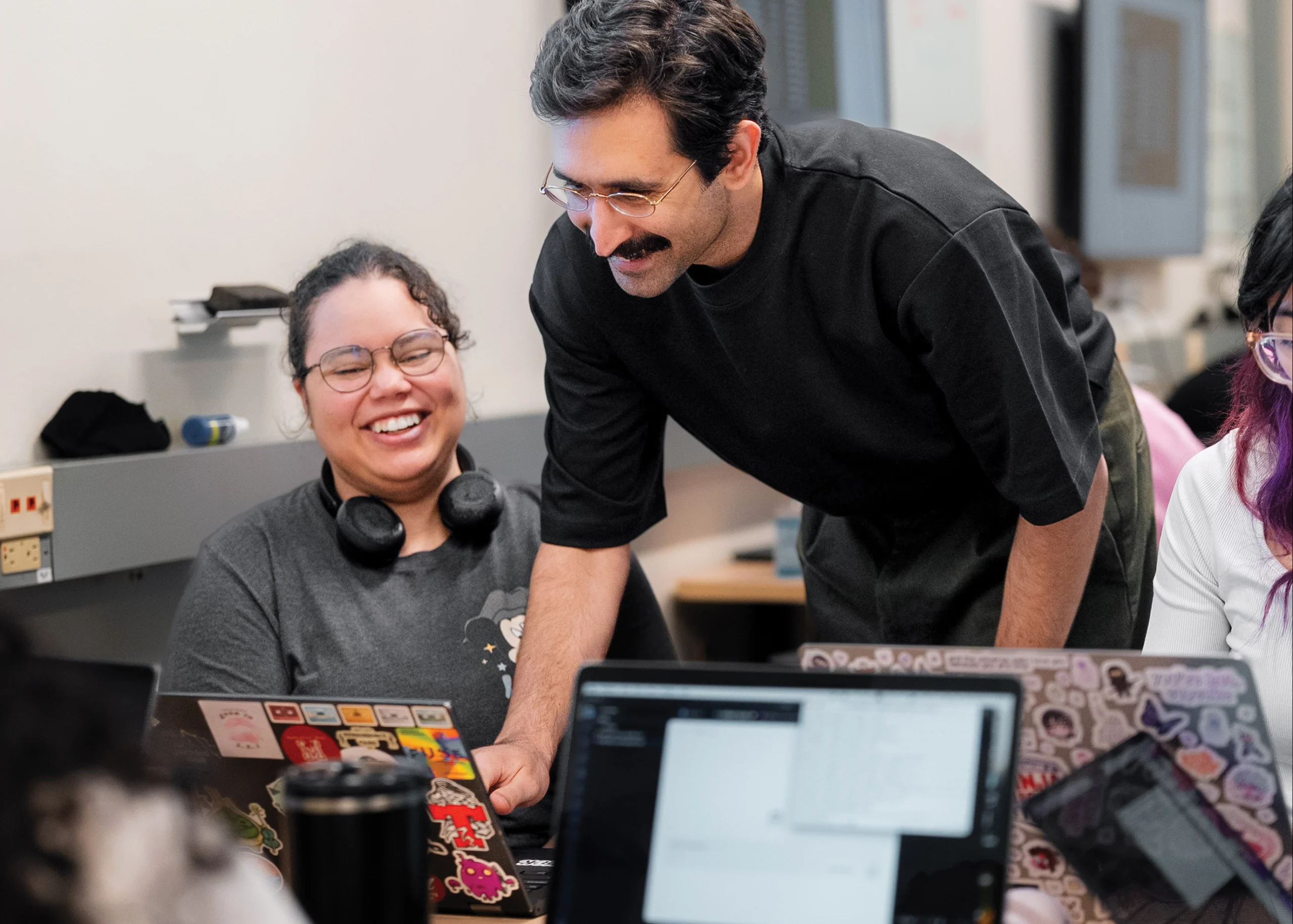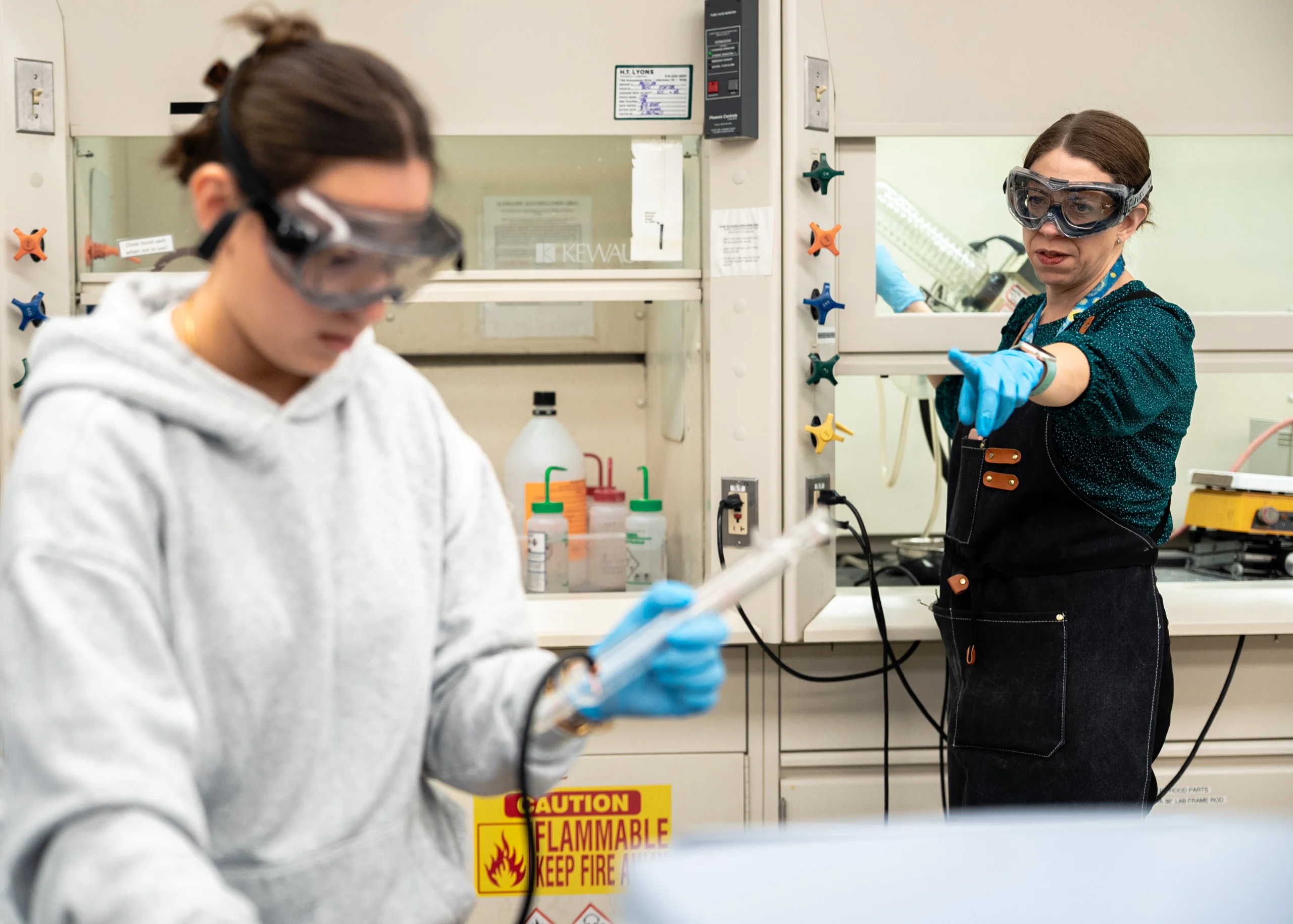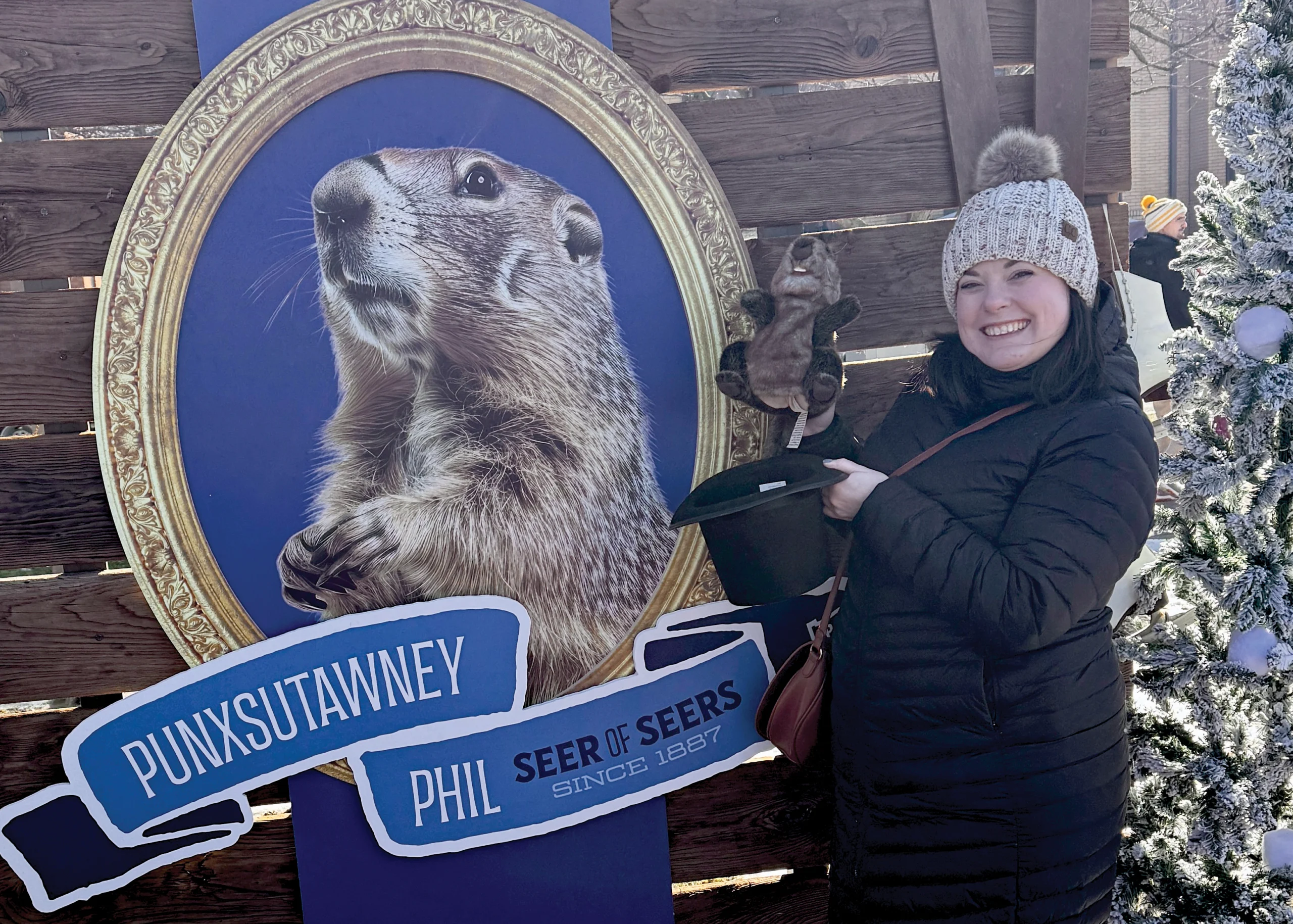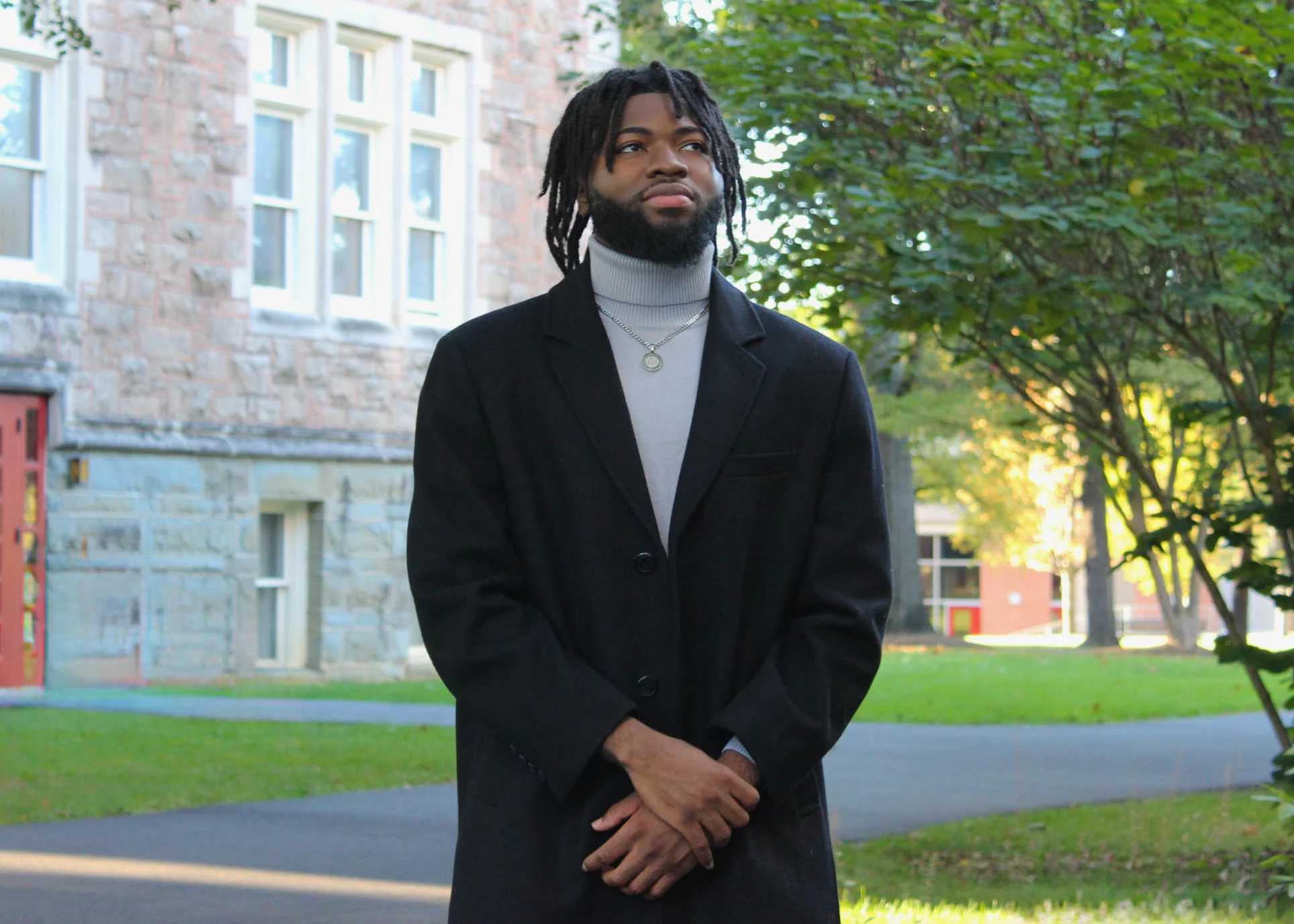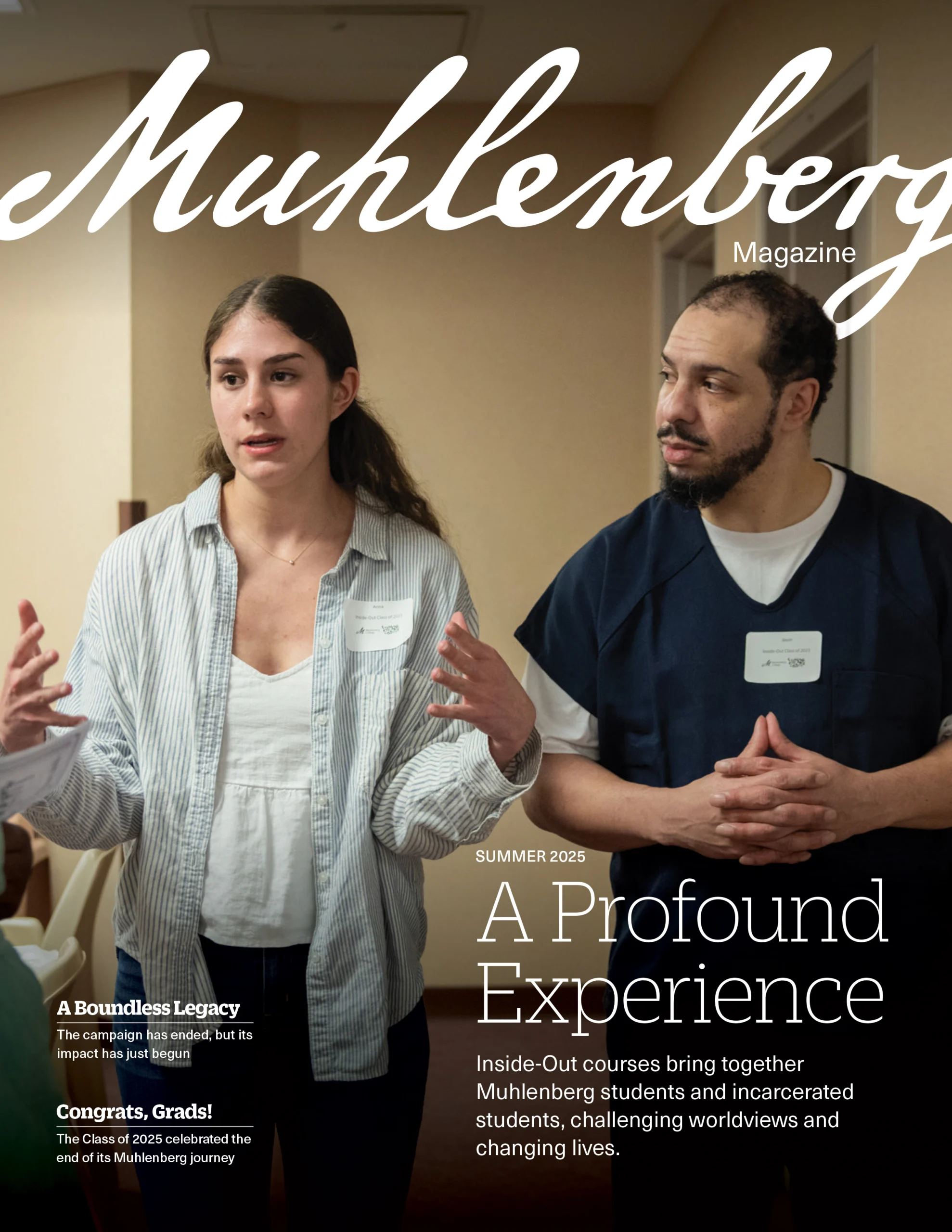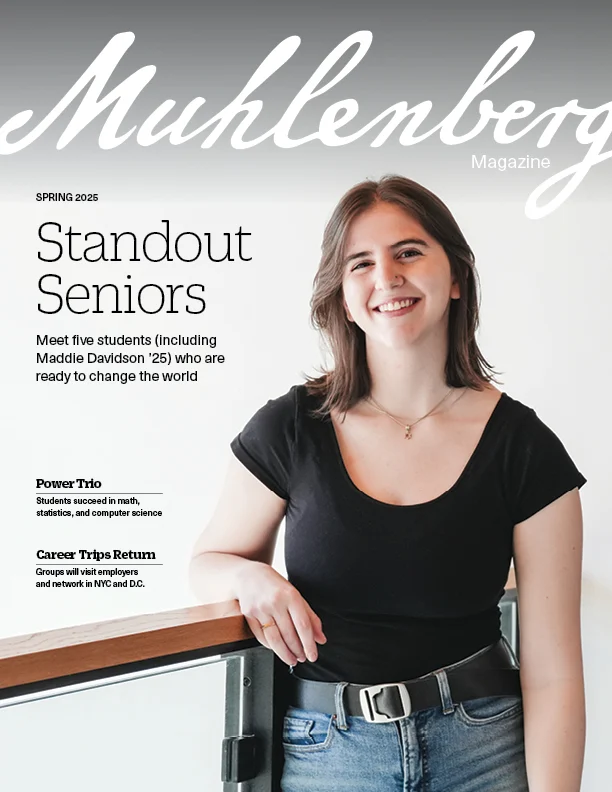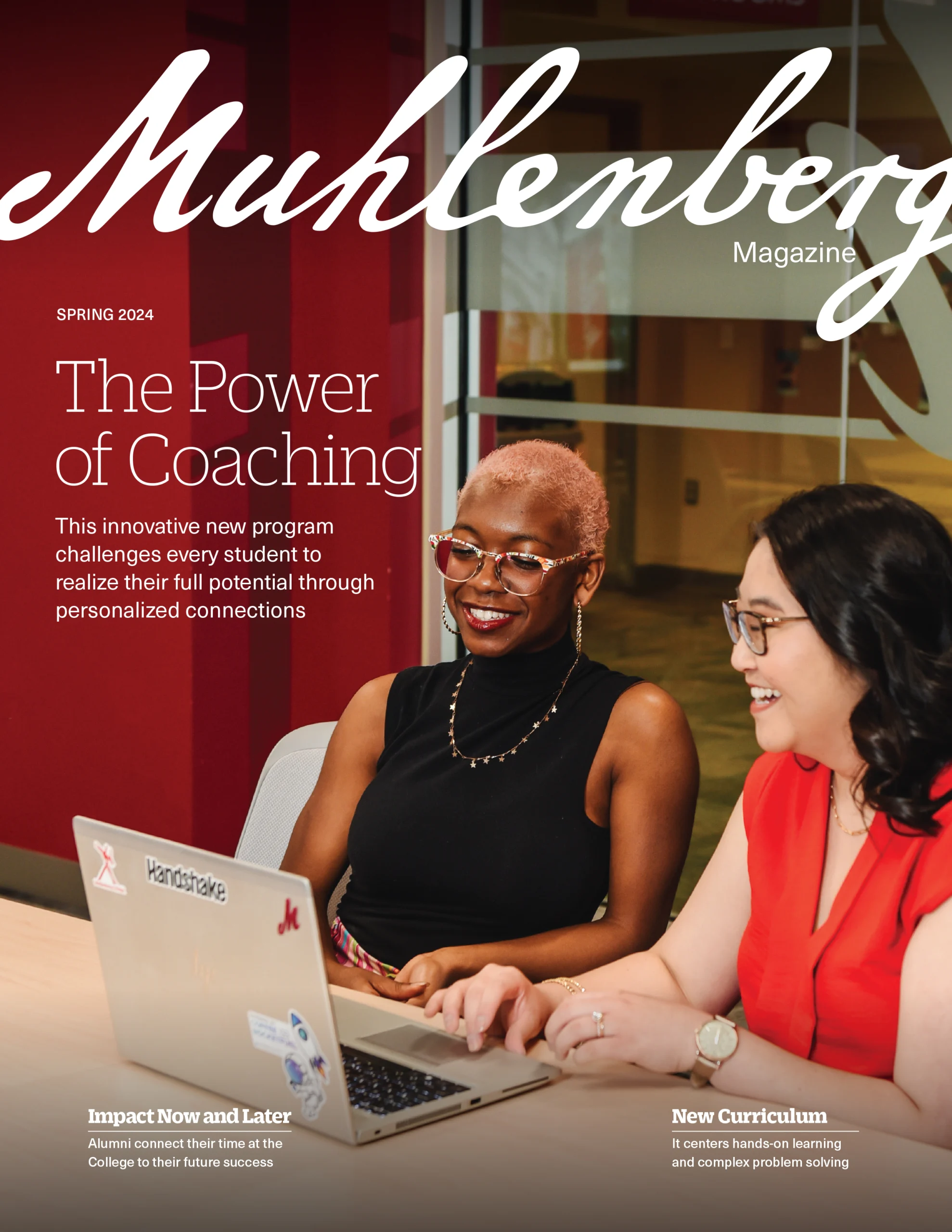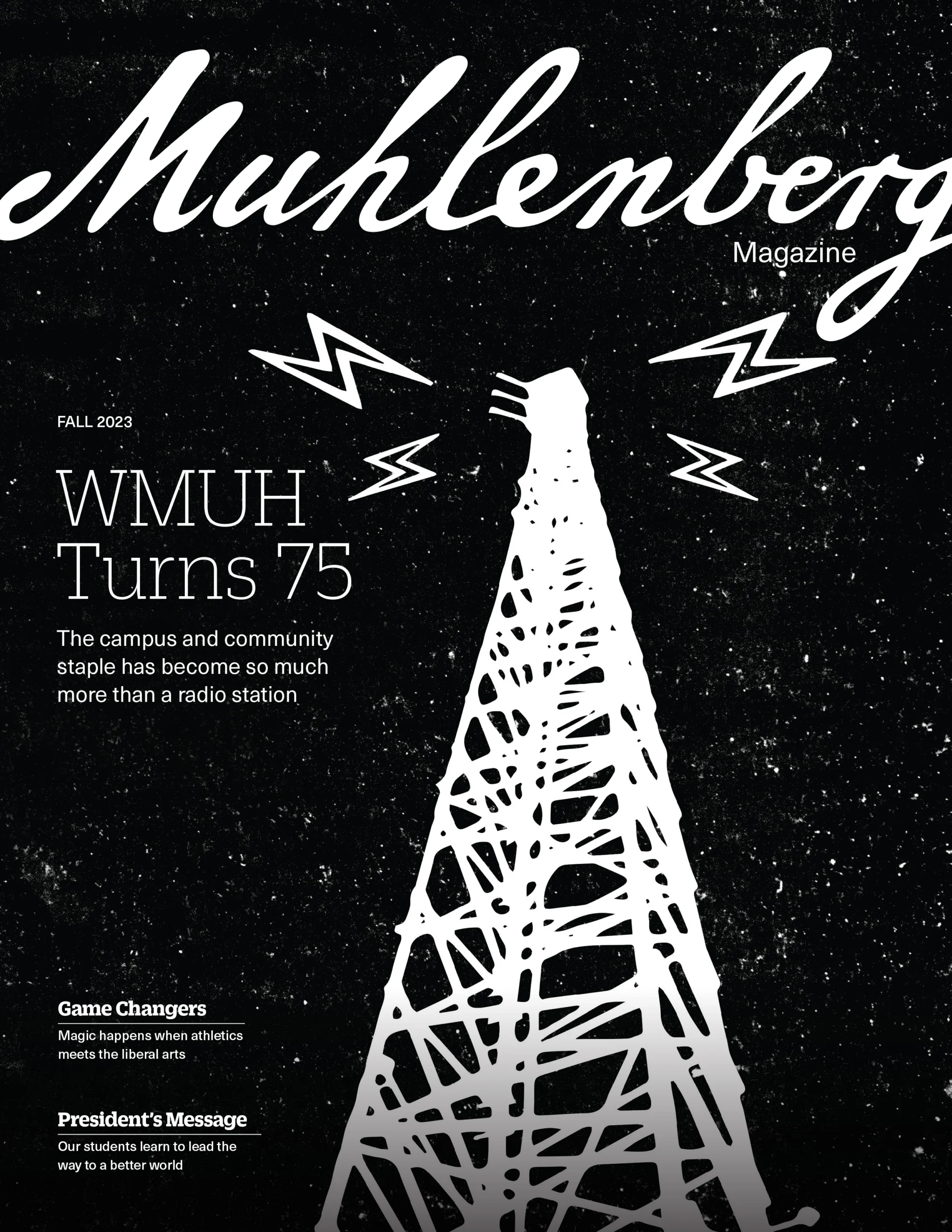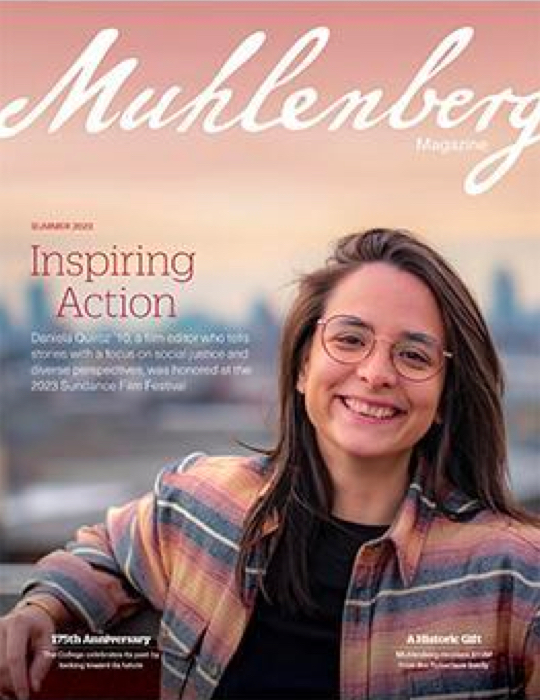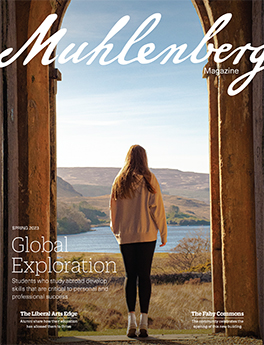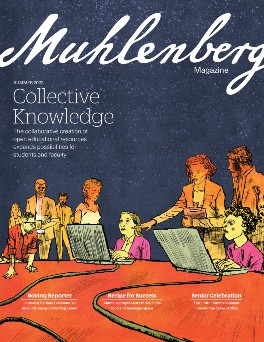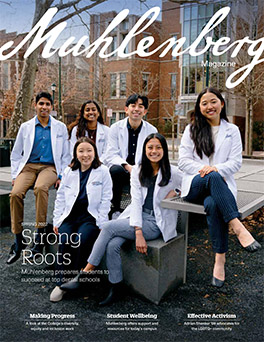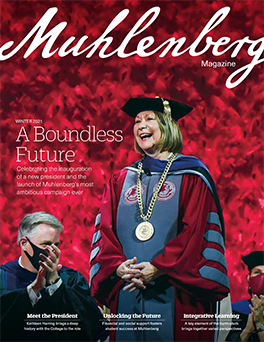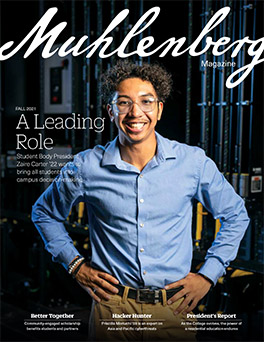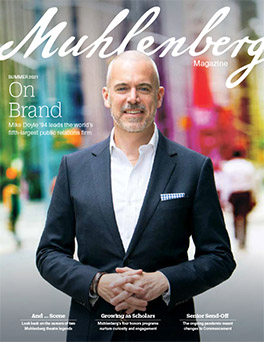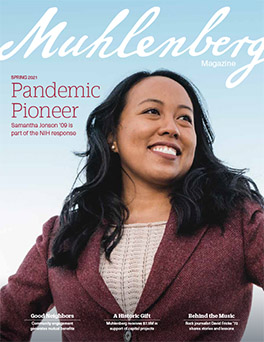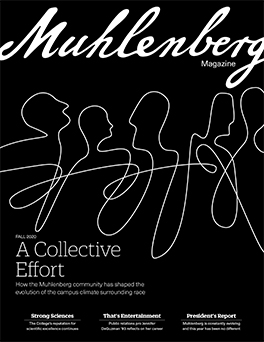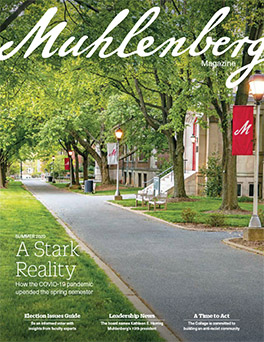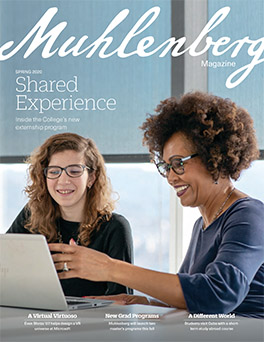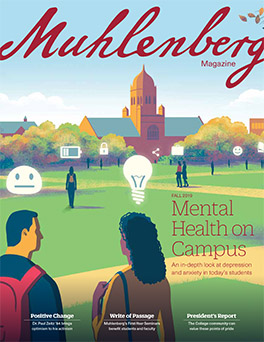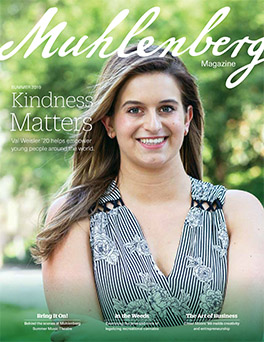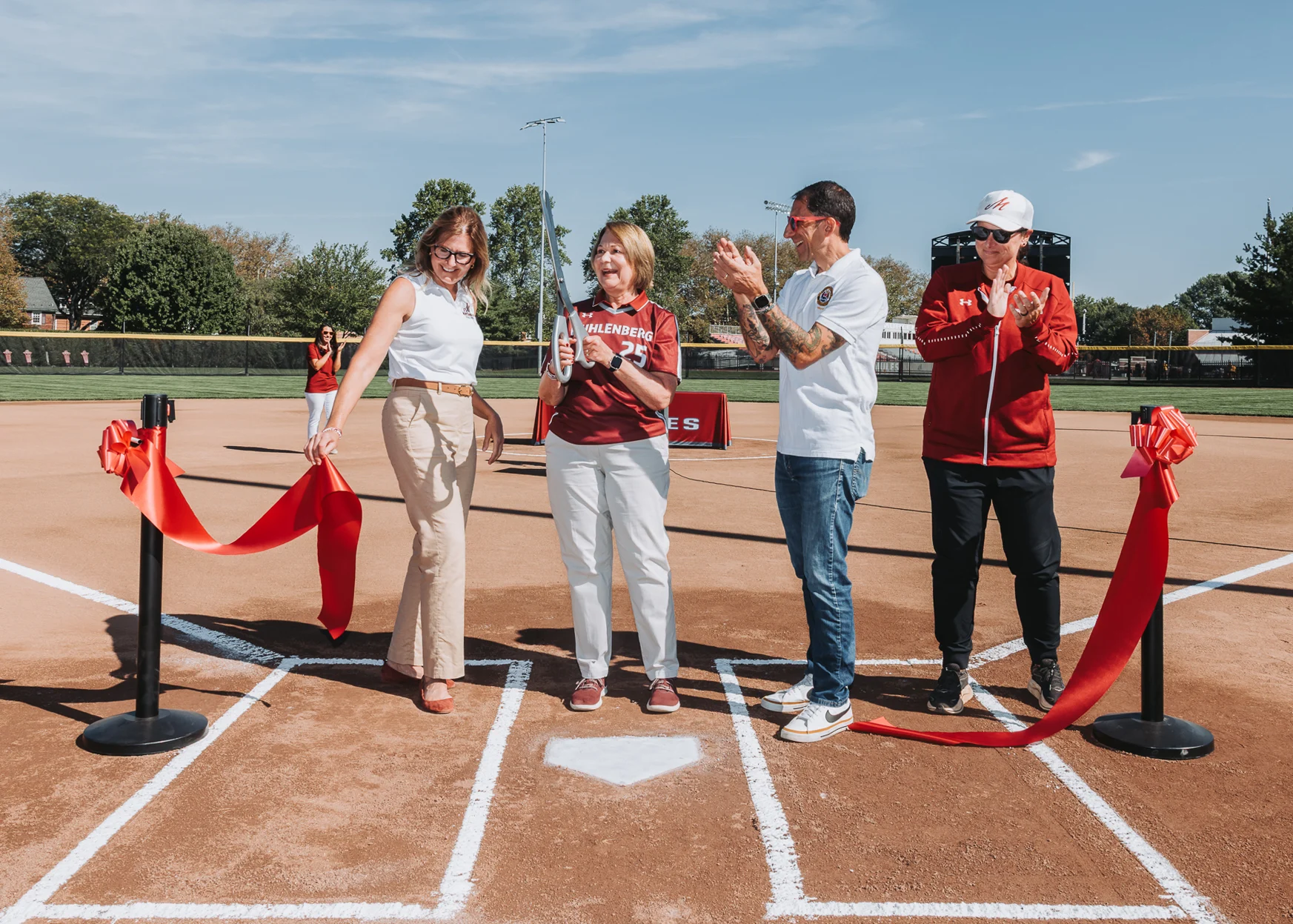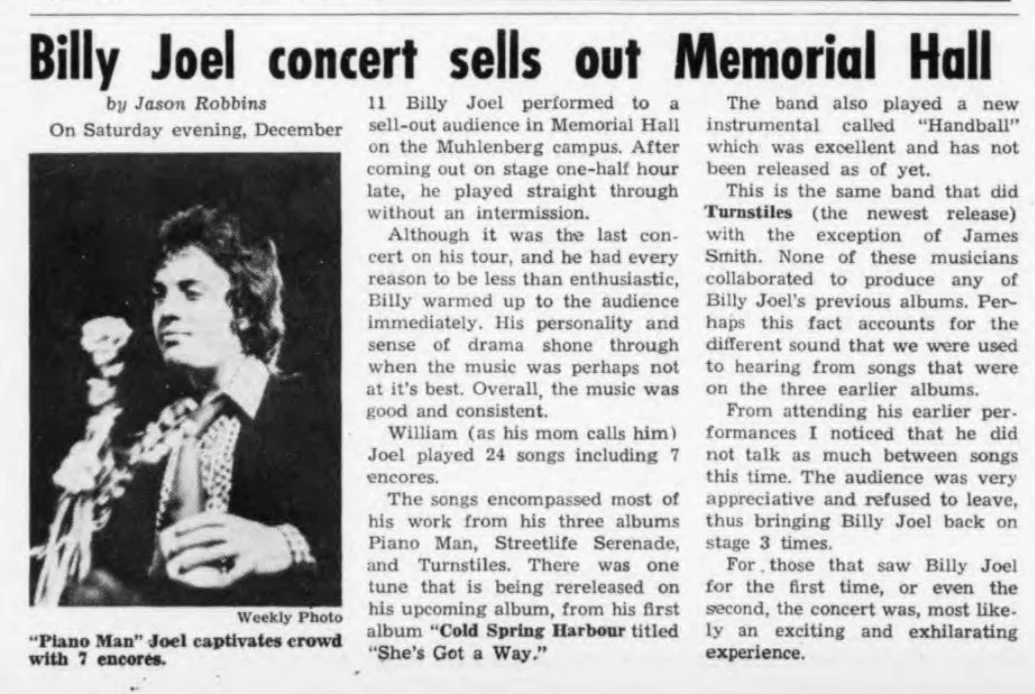
Leticia Robles-Moreno (Theatre) Collaborates and Creates
Robles-Moreno centers community-building and working together in her time with students in the classroom, on the stage, and beyond.
Anyone familiar with improv knows the concept of “yes, and”: An actor must go with the flow, working inside the world the other actors are building and then adding their own details to it. Associate Professor of Theatre Leticia Robles-Moreno has followed the same rule off the stage, and it ultimately brought her to Muhlenberg.
“My life has been a lot of finding opportunities and saying, ‘Well, why not? Let’s see. Let’s continue,’” she says.
“When I started teaching here, I realized that the students in the theatre department but also in the liberal arts from different majors are smart, creative, and fun. I enjoy teaching here with all my heart.”
Robles-Moreno began performing in improv groups and other productions as an undergraduate in her home country of Peru. She was studying literature, but she had always enjoyed attending theatre. She then went to the University of Colorado at Boulder to get her master’s degree. Her plan was to return to Peru to teach during the day and do theatre in the evenings. But in Colorado, she fell in love.
She moved to the Lehigh Valley with her new husband and discovered that New York University offered a Ph.D. in performance studies, which combined her passions for literature and theatre. As she was completing her doctorate there, she met Associate Professor of French Ioanna Chatzidimitriou, who told her about Muhlenberg’s renowned theatre program. She began teaching Race and Performance as a Muhlenberg adjunct in 2016.
“When I started teaching here, I realized that the students in the theatre department but also in the liberal arts from different majors are smart, creative, and fun,” she says. “I enjoy teaching here with all my heart.”
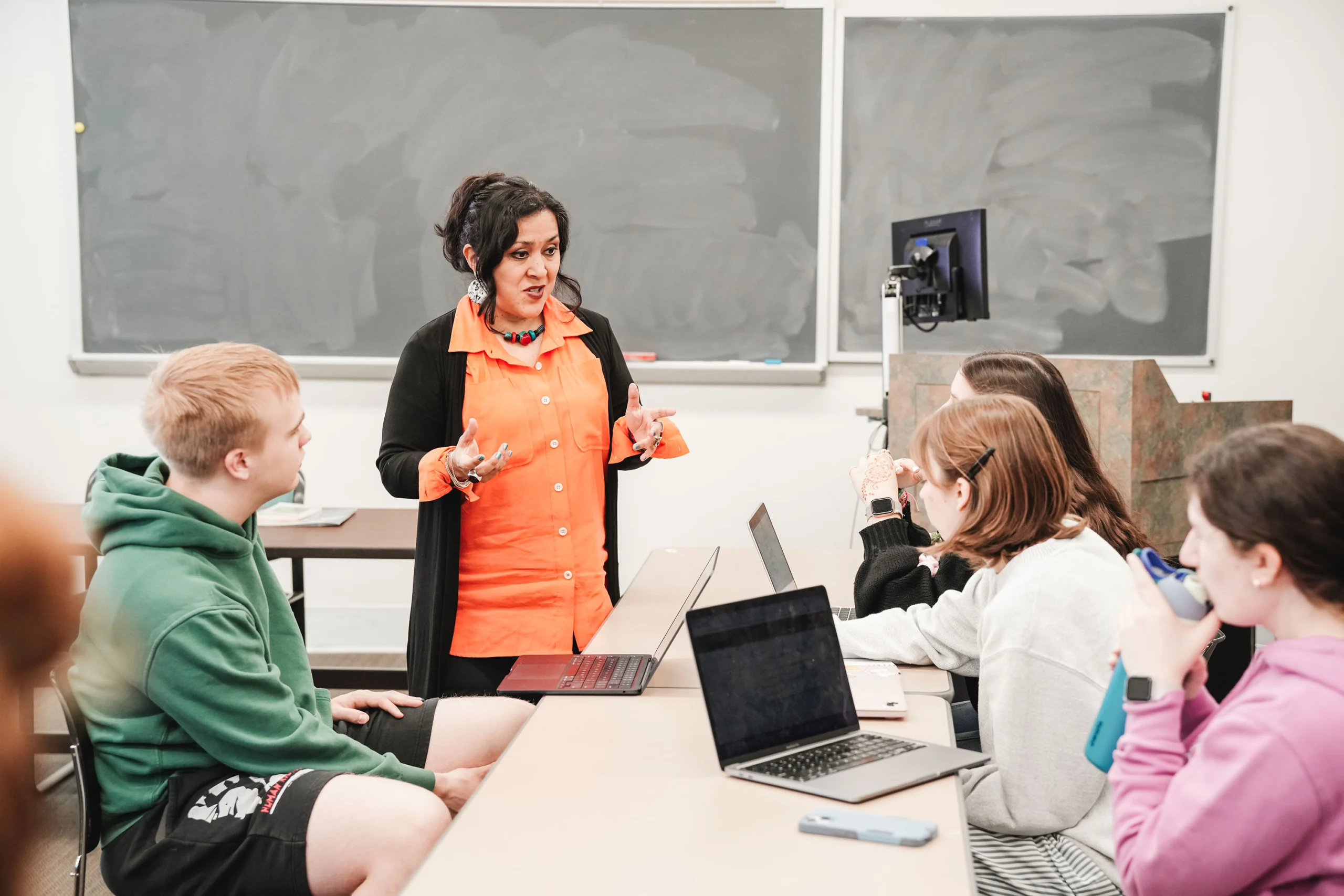
Robles-Moreno has been a full-time faculty member since 2017, and she teaches introductory theatre courses as well as courses on race, gender, performance, and politics in the Americas. Those dovetail with her research, which is on artistic collaborations, specifically “creación colectiva,” the Latin American counterpart of devised theatre.
“The years in Latin American history and Peruvian history in particular — when these theatre groups that I worked with kept doing their art — were terrible. There was authoritarianism, the disappearance of people,” she says. “What can theatre and performance do in those cases? Nobody does theatre by themselves. We’re always working with somebody. … Building community is a way of resistance and survival.”
“Nobody does theatre by themselves. We’re always working with somebody. Building community is a way of resistance and survival.”
Robles-Moreno’s students build community in her classes, which are discussion heavy and focused on collaboration and creation. She supports the departmental season, working at least one on-campus performance into each of her classes — students read and analyze the work before they go see it performed. She collaborates with fellow faculty, co-directing productions (most recently, 2023’s “The Labyrinth of Desire” with Associate Professor of Theatre Troy Dwyer) and bringing colleagues’ works to life. She took a sabbatical last year to teach in Peru, where she translated and produced a work by Assistant Professor of English Literatures and Writing and Theatre Gabriel Jason Dean. Dean visited to run a workshop with her Peruvian students and Muhlenberg students (who Zoomed in) and to see the performance.
Robles-Moreno also builds community with students beyond the theatre program. She is the faculty advisor to Comunidad, the affinity group for Latine students, and to the newly formed student group Artists for Activism. One of her first-year students approached her with the idea to launch Artists for Activism, and she loves when students approach her with ideas.
“I just want my students to know that if they are feeling isolated or they feel like nobody’s going to understand what they’re going through, my door is always open. Making connections is something that we do every second, every minute, and in times of uncertainty, it is super important.”
“Every time students come to me and say, ‘OK, so I have this idea,’ I always say, ‘That idea is amazing. What do we need to do to make it happen?’” says Robles-Moreno, who learned this mentality from her graduate school mentor, NYU Professor of Performance Studies and Spanish Diana Taylor. “There is a sense that this generation is apathetic. I don’t think they are. I think there is a lot of exhaustion. I think COVID hit them very hard. But when they have an idea and they have the drive to do it, if they get enough support, if we listen to them and we tell them, ‘Yes, let’s do it,’ they’re going to do it.”
Students aren’t required to have ideas — or even to be theatre students — to approach Robles-Moreno. She welcomes conversations with any student who needs a sounding board.
“I think it’s important to say that we are living in uncertain times, and sometimes part of that uncertainty — what makes it really dire — is that you think that you’re by yourself. It is important to remember that you are not by yourself,” she says. “I just want my students to know that if they are feeling isolated or they feel like nobody’s going to understand what they’re going through, my door is always open. Making connections is something that we do every second, every minute, and in times of uncertainty, it is super important.”

